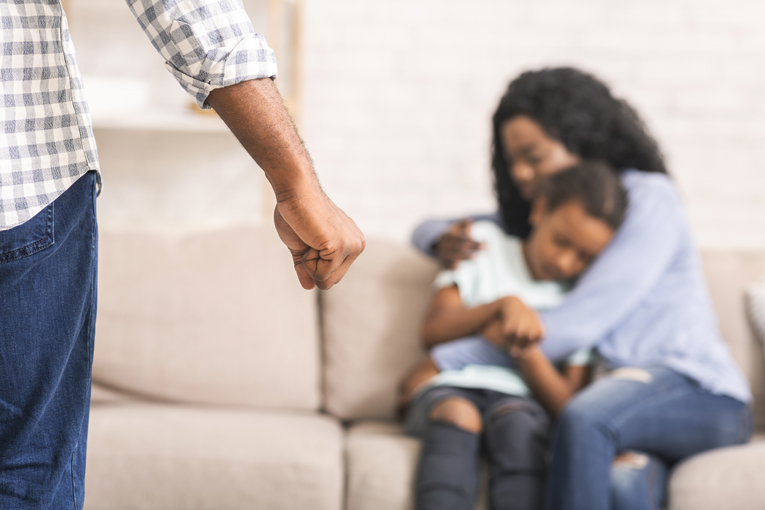Domestic Violence – How does it affect child custody?

Families torn apart by domestic violence face a heart-wrenching journey, especially when it comes to determining child custody after divorce. As family courts grapple with these sensitive cases, it must balance the child’s safety and well-being against the rights of both parents. This article explores how domestic violence influences custody determinations, and the potential outcomes for families affected by abuse. If you’re facing a custody dispute involving domestic violence, it’s crucial to consult a solicitor experienced in handling domestic violence cases to protect your rights and your child’s best interests.

Key Takeaway:
Domestic violence significantly influences child custody determinations, with courts prioritizing the child’s protection and welfare above all else. While it doesn’t automatically disqualify an abusive parent from all rights, it often leads to restricted or supervised contact.
Explore how domestic violence can impact child custody rulings and learn the importance of retaining an experienced family law attorney to protect your family’s future.
Understanding domestic violence in the UK
Domestic violence in child custody cases involves abusive behaviours between parents or ex-partners, occurring before, during, or after separation. It takes various forms, including:
- Physical abuse: hitting, kicking, pushing, or any form of physical assault.
- Emotional abuse: constant criticism, humiliation, or manipulation.
- Psychological abuse: gaslighting, mind games, or making someone question their sanity.
- Sexual abuse: non-consensual sexual acts or pressure to engage in sexual activities.
- Financial abuse: controlling money, withholding funds, or forcing financial dependence.
- Coercive control: intimidation, isolation, and control over everyday life.
The impact of domestic violence on child custody decisions
The presence of violence within the family unit greatly impacts how judges approach child custody decisions, with the child’s best interests taking utmost priority:
- Child’s safety: limiting or supervising the abusive parent’s access protects the child from potential harm.
- Emotional well-being: custody arrangements often aim to minimize the child’s exposure to conflict and provide emotional stability.
- Risk of continued abuse: safeguards in custody arrangements help prevent future abuse and protect both the child and the victimized parent.
How does domestic violence affect parental and visitation rights?
Domestic violence substantially alters parental rights, often leading to modified custody and visitation arrangements. Courts prioritize the child’s well-being and safety in these cases, frequently deviating from standard custody practices:
- Custody limitations: courts often award primary custody to the non-abusive parent, significantly restricting the abuser’s physical custody rights.
- Restricted access: Abusive parents typically face limited, supervised visits or reduced contact frequency. This often includes restrictions on overnight stays, especially in the early stages after separation.
- Reduced decision-making authority: courts may limit or revoke the abusive parent’s input on important decisions regarding the child’s education, healthcare, religious upbringing, and other significant matters, even if they retain some form of custody.
Do you need a lawyer in child custody cases involving domestic abuse?
When facing child custody issues complicated by domestic abuse, legal representation is not just advisable, but rather essential, for the following reasons:
- Navigating complex laws: domestic abuse cases involve intricate legal frameworks that a skilled attorney can effectively navigate.
- Safety planning: an attorney can help implement safety measures for you and your children during legal proceedings, including expediting emergency orders when necessary.
- Negotiating on your behalf: legal representation allows you to avoid direct confrontations with an abusive ex-partner.
- Crafting appropriate custody arrangements: lawyers can help design custody plans that prioritize child safety while respecting parental rights.
- Long-term strategy: experienced attorneys consider both immediate safety and long-term custody goals.
Given the high stakes and complex nature of these cases, professional legal guidance is invaluable in achieving the best possible outcome for you and your children.
Frequently Asked Questions
- How can I prove domestic abuse in a custody case? Evidence can include police reports, medical records, witness statements, text messages, photographs, and expert testimony. Work with a lawyer to gather and present evidence effectively.
- Can custody arrangements be changed if abuse occurs after an initial order is in place? If new incidents of abuse occur, you can petition for an emergency custody modification. The court will review new evidence and may adjust the arrangement to ensure child safety.
- Can an abusive parent still get custody of their child? While possible, it’s rare. Courts prioritize child safety and may grant limited, supervised visitation if deemed safe. Each case is evaluated individually based on evidence and circumstances.
- Will my children have to testify about the abuse in court? Courts try to minimize children’s direct involvement. Older children might speak privately with a judge or a court-appointed expert, but direct testimony is rare.
Domestic violence profoundly impacts child custody decisions, with courts striving to balance child safety, parental rights, and the child’s best interests. For those navigating these complex waters, understanding the legal landscape and seeking professional guidance is decisive.
Seeking legal support for your custody dispute?
Qredible can help you find skilled family lawyers in your area with expertise in domestic abuse cases.
KEY TAKEAWAYS:
- Domestic violence includes various forms of abuse beyond physical violence, all of which are considered in custody decisions.
- Children exposed to domestic abuse are now legally recognized as victims, influencing custody determinations.
- Courts prioritize child safety and well-being above all other factors when making custody decisions in cases involving domestic violence.
- Abusive parents often face significant restrictions on custody and visitation rights to protect the child.
- Custody orders can be modified if new abuse incidents occur, ensuring ongoing child protection.
- Expert legal representation is crucial in navigating the complex intersection of domestic violence and child custody law.
Do you need a solicitor?
Find a solicitor on Qredible in just a few easy steps
















